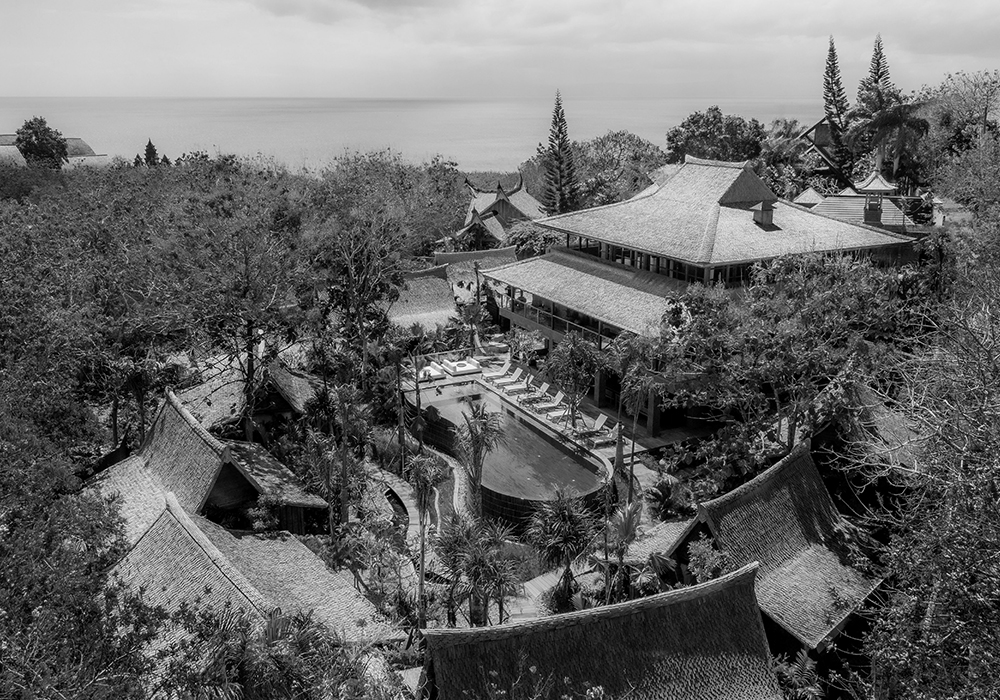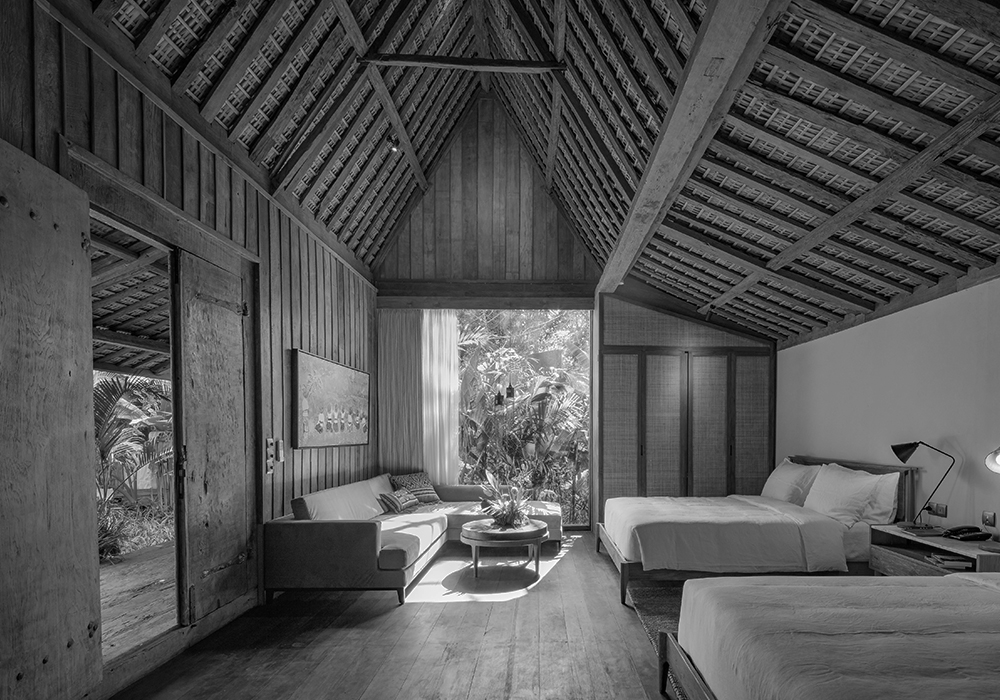WEBSITE PREVIEW – LAUNCHING AUGUST 2021
Menu

Set within lush gardens, the 10 freestanding Indonesian heritage guest suites, spa, restaurant, bar and lounge, as well as the library, yoga shala, gym, Himalayan infrared sauna and thermal pools, surround a beautiful saltwater swimming pool.
A Jl. Pantai Padang Padang | IG @theasamaia


About 90% of the woods being used are recycle wood.
"Our 10 guest suites have begun their second - if not third - lives. These century-old wood structures are known as Gladaks: traditional, vernacular Javanese homes. Each Gladak was hand-picked in East Java, each name representing the area it originated from. They were then painstakingly disassembled, carefully transported and reassembled on our site. No two Gladaks are the same. Our yoga Shala is a modified Limasan, a 100-150 year old Javanese residence, built from teak. The intricately carved entrance to the Shala is the original entrance to the house and the carved entrance to The Asa Maia is the inner wall of the Limasan.
The flat ceilings, library, stairway to the restaurant, cabinets and railings are all reclaimed teak. Our scrap wood has been used to make our hotel amenities and furniture. The clothes hangers, bedside tables, coffee tables and even the beds themselves have been created with the remaining wood.
The deck around the swimming pool is an ironwood recycled from an old bridge in Borneo, Kalimantan. All other ulin ironwood like our shala floor and several gladak floors are certified reclaimed wood."
"Reverse osmosis is a process in which raw water passes through a system that removes impurities. The water comes into the system via a break tank or mains feed. A high-pressure pump then drives the water through a set of membranes. As water passes through it, impurities such as salt or solids are removed. This process improves the purity and quality of the incoming water supply.
One of the main environmental benefits of using a reverse osmosis system is less hazardous waste water as it does not require any harmful chemicals to produce pure water. Another environmental benefit of RO is the capture and correct disposal of impurities within the mains water feed. This means there is no harmful chemically saturated water being discharged."
"We are making a stand to plastic free living. It is not just a “campaign”, it is part of our philosophy and ideology. No plastic or disposable items have ever been used at the retreat and we are committed to using alternatives for straws, cups, and bottles. This commitment also extends to our chosen suppliers or partners, all of whom are making the same effort as we are in their daily operation. The retreat also provides more sustainable alternatives to all our eco-conscious guests, making it a lot easier to go plastic-free on vacation. Not only do we encourage our guests to be more eco-friendly but we are also contributing to various community initiatives to reduce or clean plastic from our environment."
"The ultimate aim is not to manage surplus, but to eliminate every possibility of wastage. We endeavor to measure the amount of food that has been thrown away, and to consciously reduce the size of the portions, to revisit or reinvent recipes with peelings and to reduce the cooking time. However, the key waste elimination strategy at The Asa Maia is total utilization of every ingredient and product that comes into the restaurant."
"All of our products from the banana bread and vegan burger to the nut mylks and rendang are crafted in-house. Our fruits and vegetables are all organic and locally sourced. All juices are fresh, cold-pressed and made to order. Vegan options are the majority of our menu, with special attention to creating traditional Indonesian offerings with meat substitutions so that you can enjoy the fantastic flavors, spices and herbs of Indonesian cooking without the inflammatory oils or meats. Our pescatarian dishes use sustainable and wild caught fish. Our purveyors share our approach of striving to be plastic-free and provide our daily fresh picks in a recyclable or re-usable container."